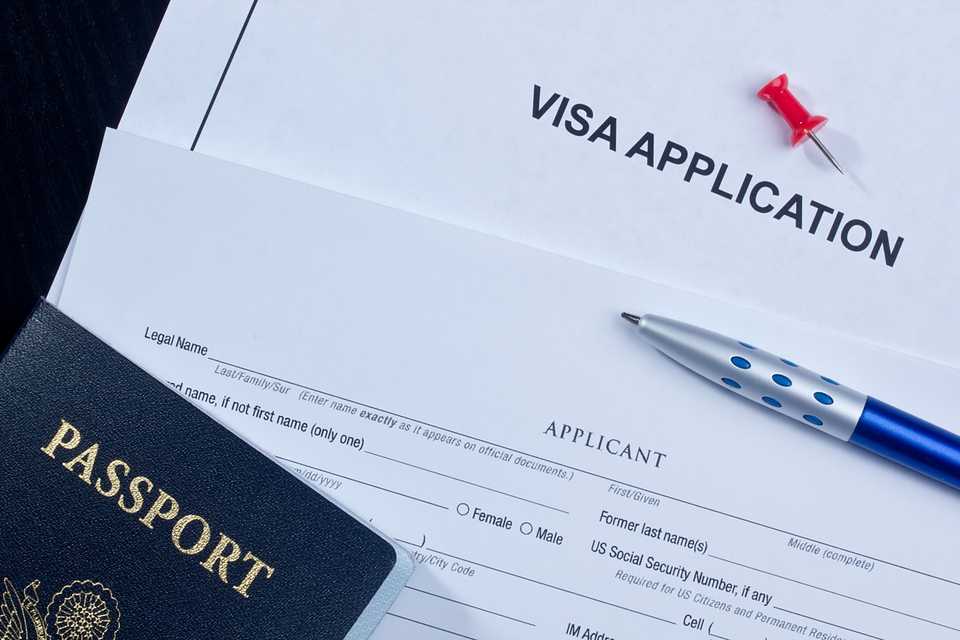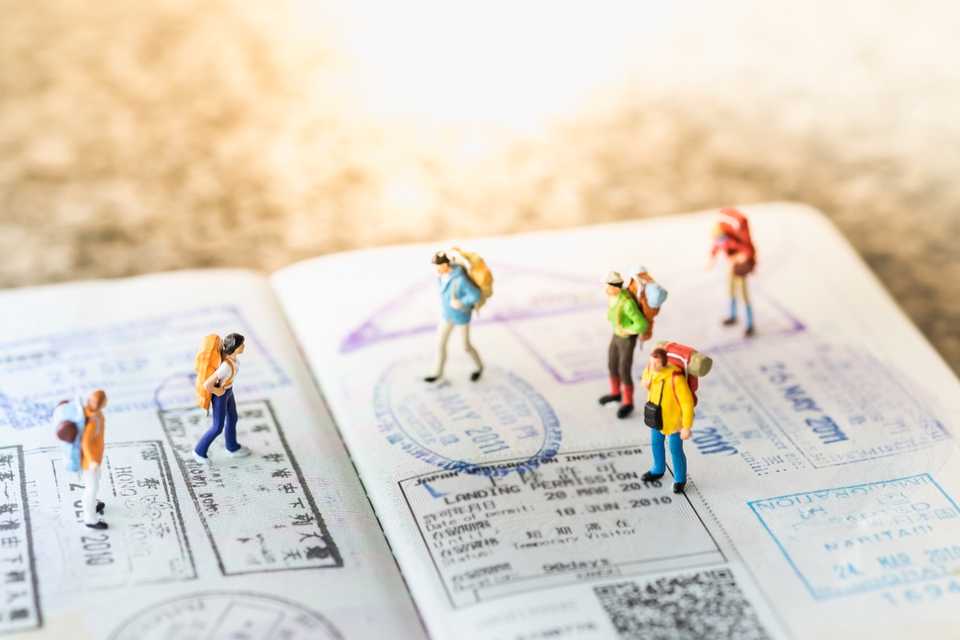Embarking on an immigration journey is a significant undertaking, filled with legal complexities and potential challenges. Whether you are seeking to reunite with loved ones, pursue educational opportunities abroad, or establish a new life in a different country, the guidance and expertise of immigration lawyers can be invaluable.
Immigration laws and regulations are ever-changing and navigating through them can be a daunting task. This is where immigration lawyers play a crucial role, providing essential support, guidance, and advocacy to individuals and families seeking to navigate the intricate landscape of immigration**.**

You can always turn to JuriGo to connect with a qualified immigration lawyer to help you sort out your situation regardless of its complexity!
The following will explore the importance of consulting immigration lawyers and how their expertise can unlock the path to successful immigration.
When to Seek an Immigration Lawyer: The Complexities of Immigration Law
Immigrating to a new country can be a life-changing and exciting endeavor, but it also involves navigating a complex legal process. whether you are looking to apply to travel, work, study or immigrate to Canada there are many steps involved and you might prefer to have the guidance of a licensed professional by your side.

Although it is possible to handle certain immigration matters on your own, there are situations where the expertise and guidance of an immigration lawyer become invaluable.
Understanding when to seek an immigration lawyer can save you time, stress, and potentially increase your chances of a successful outcome. Let's explore some scenarios where it is highly advisable to engage the services of an immigration lawyer.
| Scenarios where it is highly advisable to engage the services of an immigration lawyer | |
|---|---|
| Complexity of the Case | If your immigration case is particularly complex, involving intricate legal issues, or unique circumstances like seeking asylum, seeking the assistance of an immigration lawyer is highly recommended. |
| Prior Refusals or Denials | If you have previously been refused or denied an immigration application, an immigration lawyer can help you identify previous mistakes or weaknesses on your application. |
| Inadmissibility Issues | If you have concerns about your admissibility to a country due to criminal records, health issues, or other grounds, consulting an immigration lawyer can guide you through the process. |
| Employer-Sponsored Immigration | For individuals seeking employment-based immigration, particularly under complex programs such as H-1B visas in the United States or the Express Entry system in Canada, an immigration lawyer can be instrumental. |
| Removal or Deportation Proceedings | If you or a loved one is facing removal or deportation proceedings, Immigration lawyers experienced in removal defense can evaluate your case, identify potential grounds for relief, and represent you before immigration courts. |
What does Immigration Law Look Like? Common Immigration Mandates
Immigrating to Canada involves a complex and often challenging process, requiring a thorough understanding of immigration laws and regulations. For individuals and families seeking to make Canada their new home, consulting with an immigration lawyer can be instrumental in navigating the intricacies of the immigration system.

Immigration lawyers are well-versed in a wide range of immigration mandates and can provide valuable guidance and support throughout the application process. Let's explore some of the most common immigration mandates handled by lawyers in Canada.
- Express Entry and Skilled Worker Programs
- Family Sponsorship
- Work Permits
- Study Permits
- Refugee Claims
- Citizenship Applications
These are just a few examples of the common immigration mandates handled by lawyers in Canada. Immigration lawyers are equipped with the knowledge, expertise, and experience necessary to navigate the complexities of the immigration system, ensuring that applicants have the best chance of achieving their immigration goals.
Moreover, they stay updated on changes in immigration laws, regulations, and policies, and can provide personalized advice and representation tailored to individual circumstances.
When it comes to navigating the immigration landscape in Canada, seeking the assistance of an immigration lawyer is often essential. Their expertise and guidance can help individuals and families understand the requirements, prepare strong applications, and overcome potential obstacles along the way.
An overall benefit for those who choose to consult
By engaging the services of an immigration lawyer, individuals can have peace of mind knowing that their immigration journey is in capable hands, increasing their chances of a successful outcome in their pursuit of a new life in Canada.
It is important to remember that immigration laws and regulations are subject to change, and the requirements can vary depending on the country and specific circumstances.
Immigration lawyers stay updated on these changes and are well-versed in interpreting and applying the law to individual cases. They can provide personalized advice, guide you through the paperwork, represent you during interviews or hearings, and advocate for your best interests.
There are exceptions…
While not every immigration matter requires the assistance of a lawyer, there are situations where the complexities, potential obstacles, or legal risks make it highly advisable to seek professional legal representation.

An experienced immigration lawyer can provide expert advice, streamline the process, and maximize your chances of a successful outcome. When in doubt, consult with an immigration lawyer to ensure that you are well-informed and well-prepared for your immigration journey.
Express Entry: Canada's Efficient Pathway for Skilled Workers to Immigrate
This is a popular and efficient system for skilled workers to immigrate to Canada. It manages three federal economic immigration programs: the Federal Skilled Worker Program (FSWP), the Federal Skilled Trades Program (FSTP), and the Canadian Experience Class (CEC).
Applicants create an online profile and are assigned a Comprehensive Ranking System (CRS) score based on factors such as age, education, work experience, language proficiency, and more. The highest-ranking candidates are invited to apply for permanent residency through regular draws.

The government of Canada has a very comprehensive guide for this process. It also has a questionnaire for you to fill out that will give you a score based on which you will recommend or not to apply for permanent residency.
The focal point here is going to be regarding the documents required. This is often when seeking the assistance of a lawyer can be beneficial as some processes can be lengthy and you want to make sure that the documents you submitted are duly filled out as required.
Provincial Nominee Programs (PNPs): Tailored Pathways to Permanent Residency in Canadian Provinces
Each Canadian province and territory, except for Quebec, has its own PNP, allowing them to nominate candidates for permanent residency based on their specific labor market and economic needs. PNPs often target skilled workers, international graduates, and individuals with work experience in in-demand occupations within the province.

Essentially these programs enable provinces to select the market segment of immigrants they want to welcome. They will usually set this up based on their labor market and societal needs.
Again, under this program there are different streams you can apply under. This is when having the help of a licensed attorney can be greatly beneficial in helping you navigate the complexities and choosing the right stream to maximize your chances of success.
Family Class Sponsorship: Strengthening Bonds Through Immigration to Canada
Canadian citizens and permanent residents can sponsor their family members for immigration to Canada. This program includes sponsoring spouses or partners, dependent children, parents, and grandparents. Sponsors must meet certain eligibility requirements and agree to support their sponsored family members financially.

To move forward with this pathway, you can sponsor certain relatives to come to Canada if you’re at least 18 years old and meet the following requirements:
- Canadian citizen or
- Person registered in Canada as an Indian under the Canadian Indian Act
- Permanent resident of Canada
This is a serious undertaking, and it is incredibly important that you understand first and foremost its implications. This can be done with the help of a lawyer.
When you agree to sponsor someone, you are required to sign an undertaking, which entails providing financial support for the essential needs of your spouse or partner and their dependent children.
These needs encompass everyday living expenses such as food, clothing, shelter, as well as additional healthcare requirements like dental and eye care that are not covered by public health services.
Important safeguarding measures
Before signing the undertaking agreement, it is crucial to ensure that the individuals you are sponsoring will not require government financial assistance. If they receive social assistance during the period, you are legally responsible for them, you will be obligated to repay the amount received.
Failure to repay will prevent you from sponsoring anyone else until the outstanding amount is settled. Further details can be found in the Defaults section below.
The undertaking constitutes a binding commitment, meaning that you are responsible for supporting the applicant(s) throughout the entire undertaking period, even if your personal circumstances change.
The undertaking remains in effect for the duration of the undertaking period, irrespective of changes such as the sponsored person obtaining Canadian citizenship, the breakdown of your relationship or divorce, relocation to another province or country, or encountering financial difficulties.
Refugees and Asylum Seekers: Canada's Programs for Protection and Resettlement
Canada has programs to welcome refugees and provide protection to individuals fleeing persecution or danger in their home countries. The country has different processes in place for refugee resettlement, asylum claims, and humanitarian immigration.

What is a refugee?
A refugee is an individual who has left their country of origin due to the presence of severe human rights violations and persecution, rendering it unsafe for them to stay and necessitating the need for protection. They are unable to return to their home country.
In-Canada Asylum program
Individuals who arrive at a Canadian point of entry or are already present in Canada have the option to seek refugee protection by submitting a refugee claim to the Immigration and Refugee Board of Canada (IRB).
As an independent administrative tribunal, the IRB assesses whether the claimant qualifies for refugee protection.
The IRB evaluates cases based on two protection categories:
- Convention Refugee: This category applies to individuals who possess a well-founded fear of persecution due to factors such as race, religion, nationality, membership in a particular social group, or political opinion. They must be outside their country of nationality and unable or unwilling to return.
- Person in Need of Protection: Individuals falling under this category face the risk of torture, threat to their life, or cruel and unusual treatment or punishment if they return to their home country.
Notably, individuals seeking asylum upon entry to Canada from the United States typically cannot make a refugee claim due to the Canada-US Safe Country Agreement.
If the IRB determines that an individual meets the eligibility requirements for either of these categories, they will be granted "protected person" status and can proceed to apply for permanent residence. In case the claim is rejected, there may be an option to appeal to the Refugee Appeal Division (RAD).
The Importance of Immigration Lawyers for Successful Immigration Procedures!
Embarking on an immigration journey is a complex and challenging process, and the guidance of immigration lawyers is invaluable. These legal professionals specialize in navigating the intricate landscape of immigration laws and regulations, providing essential support, guidance, and advocacy to individuals and families.
Understanding when to seek the assistance of an immigration lawyer can save time, reduce stress, and increase the chances of a successful outcome. Complex cases, prior refusals or denials, inadmissibility issues, employer-sponsored immigration, and removal or deportation proceedings are some situations where consulting an immigration lawyer is highly advisable.
Immigration lawyers are well-versed in various immigration mandates such as Express Entry, family sponsorship, work permits, study permits, refugee claims, and citizenship applications. They stay updated on changes in immigration laws and provide personalized advice and representation tailored to individual circumstances.

It is important to note that immigration laws and regulations are subject to change, and requirements may vary depending on the country and specific circumstances.
Immigration lawyers stay updated on these changes and interpret and apply the law to individual cases, ensuring applicants are well-informed and well-prepared for their immigration journey.
By consulting an immigration lawyer, individuals can have peace of mind knowing that their immigration journey is in capable hands, increasing the likelihood of a positive outcome in their pursuit of a new life in Canada.
Contact JuriGo today and get connected with a qualified attorney to help you embark on your immigration journey! JuriGo is a free service and can help you find the right attorney that meets your needs. Help is a click away!